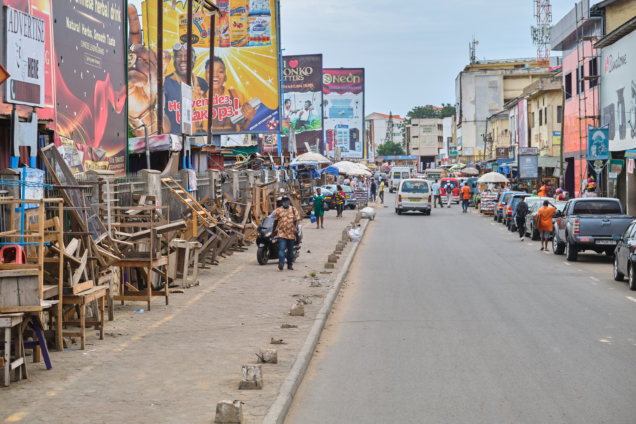President Akuffo Addo’s decision to lift a stay-at-home order in Greater Accra, Greater Kumasi and Tema at a time when transmission of the coronavirus has not been controlled has surprised many. These major cities were placed under a three-week lockdown to prevent the spread of the coronavirus.
As of April 19, 2020, the day on which the President chose to announce his decision, total tested cases were 68,591. Out of this number, total negative cases were 67,549 (98.5%); total positive cases were 1042 (1.5%); recovered cases were 99 (9.5%) and total deaths stood at 9 (0.9%), according to Ghana Health Service data.
Many fear that the President’s decision may be a premature attempt to start the Ghanaian economy and this could trigger a new wave of covid-19 cases, especially as the WHO criteria[1] for lifting lockdowns have not been met.
But we need to recognize that our economy, dominated by informal sector workers, cannot sustain the same lockdown procedures as the West. Many medium, small and micro enterprises (MSMEs), which occupy a dominant role in Ghana’s economic life (constituting 99.8% of enterprises in Ghana),[2] have taken a serious hit as a result of the lockdown and its associated financial constraints. Unlike the middle class, many poor and vulnerable people have struggled to feed their families these past three weeks while the stay-at-home order remained in force.
It is no surprise that low-income earners and many vulnerable people in Ghana have welcomed the President’s decision. Some even took to the streets of Accra to celebrate the lifting of the stay-at-home order.[3]
But as the President indicated in his address, we are not out of the woods yet and we should not interprete the lifting of the lockdown to mean that this public health danger has passed.
Going forward, we need to be more vigilant.
- Government must provide the necessary resources for the National Commission for Civic Education (NCCE), Information Services Department (ISD) and other relevant State institutions to intensify public education about covid-19.
- Government must resource health care institutions and professionals to carry on with tracing, testing, isolation and treatment of cases.
- Government must strictly enforce social distancing rules and the ban on public gatherings, including schools, churches, mosques and other social activities.
- Citizens must maintain good hygiene. Eg. wash your hands, avoid touching your face, etc
The fight against Covid-19 is the shared responsibility of government and citizens. Any abdication of responsibility by either side could prolong this pandemic.
Grace Ayensu-Danquah MD, MPH, FACS, is the NDC Parliamentary Candidate for the Essikado Constituency and a member of the NDC Covid-19 Technical Team.
Latest Stories
-
CHRAJ report scratched the surface on “the double identity” of Rev. Kusi Boateng – Ablakwa
8 mins -
Elections: Akufo-Addo calls for unified front to combat political instability
20 mins -
Alidu Seidu ruled out for the season after suffering raptured ACL
20 mins -
Women advocate for tax waivers, clear timelines for implementation of economic policies
24 mins -
Disinformation, misinformation making our work tedious – NCCE
35 mins -
COP29: Africa expected more in new Climate Finance deal
39 mins -
Vice President Bawumia commends Lands Commission for digitalising its operations
41 mins -
By age 7, I knew everything I wanted to do in life – KOD
43 mins -
10 GWCL customers in Ashanti north celebrated for loyalty, timely water bill payment
43 mins -
Forex debt crisis at ECG: A threat to Ghana’s sovereignty and economic stability
44 mins -
Donewell Life Assurance rebrands to Pinnacle Life Insurance: A new era of excellence
1 hour -
NDC blames ECG’s poor revenue collection for energy sector challenges
1 hour -
MEST Africa, Mastercard Foundation celebrate EdTech Innovations at Demo Day in Accra
1 hour -
AWA reaffirms commitment with FOD Walk during Safety Week
1 hour -
Kuami Eugene hopeful he’ll be first Lynx artiste to survive after leaving the label
2 hours

